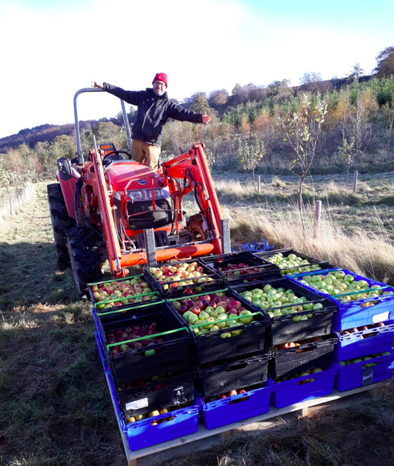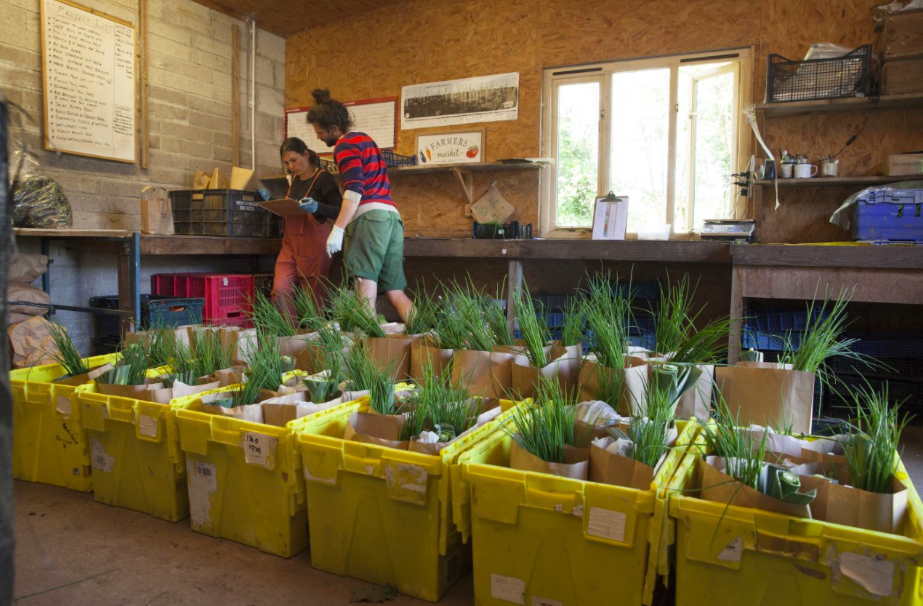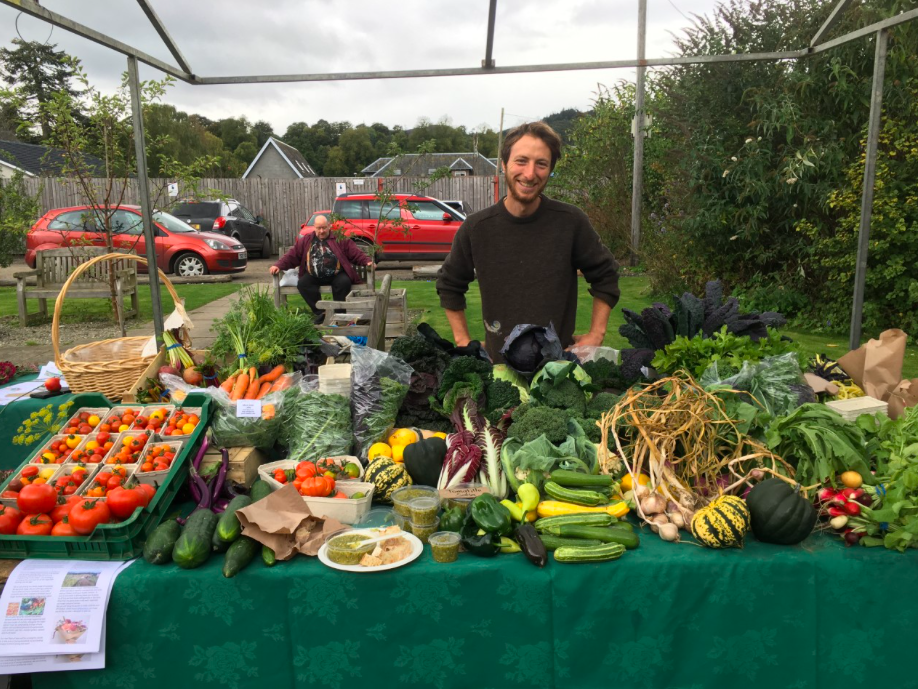|
March 2020 saw an unprecedented increase in demand for food in the UK, with supermarket shelves lying empty, and rationing systems set up for some essential items. This was not just an inconvenience in our usually convenient system. People lost their jobs and homes overnight and were forced to food banks, with food bank usage nearly doubling in comparison to 2019. Supply from supermarkets to food banks dropped as more food was being sold in store, pushing some food banks to close. At the same time, as much as £20million of fresh food destined for hospitality and schools was at risk of being dumped, and thousands of litres of milk were poured down the drain as dairy farmers lost their markets. For many people our supply chains broke down, exposing the weaknesses in the global, just-in-time system. As is so often the case farms were left with little support or security as prices and demand fluctuated. Supermarket shelves didn’t take too long to return to normal, but at what price? Fears that thousands of tonnes of fruit and vegetables would go unharvested in our fields due to reduced ability of migrant workers to travel, drove an enthusiasm for a new British land army. Little attention was paid to the Romanian agricultural workers that were flown to the UK in the height of lock-down, without clear guarantee of safe working practices and accommodation. Enthusiasm for the land army soon waned as reality bit. Labouring in our industrial agriculture system is rarely well paid, nor dignified. It is often dangerous. It’s telling that many of the Covid-19 outbreaks that happened over the summer originated in food processing plants, where people were expected to continue to work long shifts in warehouses where social distancing is impossible to follow. Pay disputes followed as factories closed and workers, forced to self-isolate, couldn’t guarantee receiving sufficient sick-pay. Migrant workers are particularly at risk of being exploited in this system, afraid to declare feeling unwell or speak out for their rights. Alongside this, financial pressure on smaller independent retailers intensified what was in many cases already a struggle to survive, while supermarkets sales surged and they benefited from rates holidays. In March the big grocers recorded an extra £1.9 billion in sales as shoppers made more than 79 million extra trips to their stores. Alongside the surge in demand the sector received a £3bn business rates holiday. For Sainsbury’s, share prices surged, the business rates holiday was worth more than twice the companies annual profits, while Tesco had a business rates bill of £700m, equal to 50% of its profits for 2019. Shortly after the rates holiday was announced the company increased its dividend by 60%, proposing a payout to shareholders of £637m. It is clear that COVID-19 has already reshaped our food system dramatically, and that we face more shocks and changes in the coming years as our future trading relationship with the EU, and other countries through free trade agreements is negotiated. Amidst the crisis, there were glimmers of something better. The Landworkers Alliance have published a set of 19 case studies (including farms in Scotland - Whitmuir, Tomnah'a and Knockfarrell) demonstrating direct sales and short supply chain systems, which show examples of a better food system that shone through the crisis. In the first month after lockdown sales of small scale box schemes (<300 boxes per week) increased by 134%, with two thirds of these systems actively prioritising key workers, vulnerable people or those who were self-isolating. These case studies reflect the experience of many of our members at the beginning of lockdown, with people getting in touch desperate for food but not able to go to the shops or access supermarket online ordering systems.
We feel measuring success only in income is far too reductive as a host of other benefits are equally valued” Lutfi Radwan, Willowbrook Farm When we dig a little bit deeper into what direct sales systems mean for these case studies, we find much more to shout about than economics. For all of our case studies, capturing more of the food pound is never primarily for the purpose of profit. Direct sales allow their determined and driven effort to allow them to reinvest in their farm, to gradually regenerate depleted soils, support biodiversity, offer educational opportunities, and many many more benefits. Direct sales is also about building relationships with customers - with people - to develop a better connection between people, community and food. For the farmer to have a face, and for people to be able to have access to food that is good for them. It is ultimately about creating dignity. Covid is not the last crisis we will see over the next few years. The climate crisis is now widely recognised as one of the biggest, if not the single biggest threat to food security. We need to act quickly to transform our food system to one that is more resilient, creates decent livelihoods for producers, and is based on principles of agroecology and food sovereignty. Direct sales systems offer one tool to help build the food system that we urgently need. In Scotland, we have opportunities ahead of us to create systems that support direct sales systems. Scottish Ministers are working on a new Policy Statement on Food, and we, along with the Scottish Food Coalition members, support calls for local authorities to develop local food plans which focus on how to support and develop local food economies. Procurement - getting good food into schools, hospitals and other public venues - could play a huge role in supporting local food systems. Developing flexible procurement systems that allow farmers to link in with local schools could have huge benefits educationally and economically.
0 Comments
Leave a Reply. |
Proudly powered by Weebly




